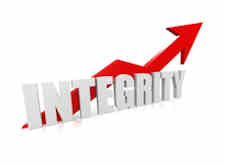
All too often we hear of transactions that did not work out as planned.
The ability to identify critical trends and understand what is behind the numbers can have a real impact on the transaction value and its ultimate success.
The primary objective of a quality of earnings report is to assess the sustainability and accuracy of historical earnings as well as the achievability of future projections. A QOE report that broadens the scope to include a review of the company’s integrity, management assessment, and an operational overview may lend critical information on the enterprises ability to generate future earnings.
A well-researched and developed QOE report goes beyond an accounting review of the financial statements. It looks at whether an enterprise and proposed transaction have the necessary financial, human, capital, and other resources to execute the strategic plan.
QOE report may cover a wide range of areas including; management, operational, marketing and financial matters. Financial due diligence (often referred to as “accounting” due diligence) is focused on providing potential investors with an understanding of a company’s:

Do your Quality of Earnings reports cover:
Revenue
Is the revenue real?- Are sales real?
- Discounts and rebates?
- Customer concentration?
- Margins by customer?
- Margin by products?
- Non-recurring revenue?
Non-recurring costs
Including pensions- Are pension costs recorded?
- Non-recurring items?
- Seller add backs real?
- Unrecorded obligations?
- Capital items?
- Accounting systems?
Forecasting / business planning
Does the company use...…activity-based planning?
- Sales by customer product
- Aligning costs to revenue
- Changes in working capital?
this is one of the most critical documents
Non-financial items
Management resources culture
Culture can be critical
Receivables
Understanding the incoming cash- Increase in sales or slow collections?
- Sales cutoff done correctly?
- What is the AR turn trend?
- Buying future sales?
- Re-aging?
Inventories
Changes will impact margins, real or otherwise- Salable?
- Costing buildup?
- Inventory turns?
- Obsolescence?
- Resources?
- Future earnings?
Operating assets
Tired or full-of-life?- Resources to meet growth?
- Efficient or outdated?
- Aggressive capitalization?
- Cash forecast?
Obliagations
Are they all recorded?- Smooth out earnings?
- Accruals properly recorded?
- Warranty?
Are systems in place for proper recording of liabilities?
